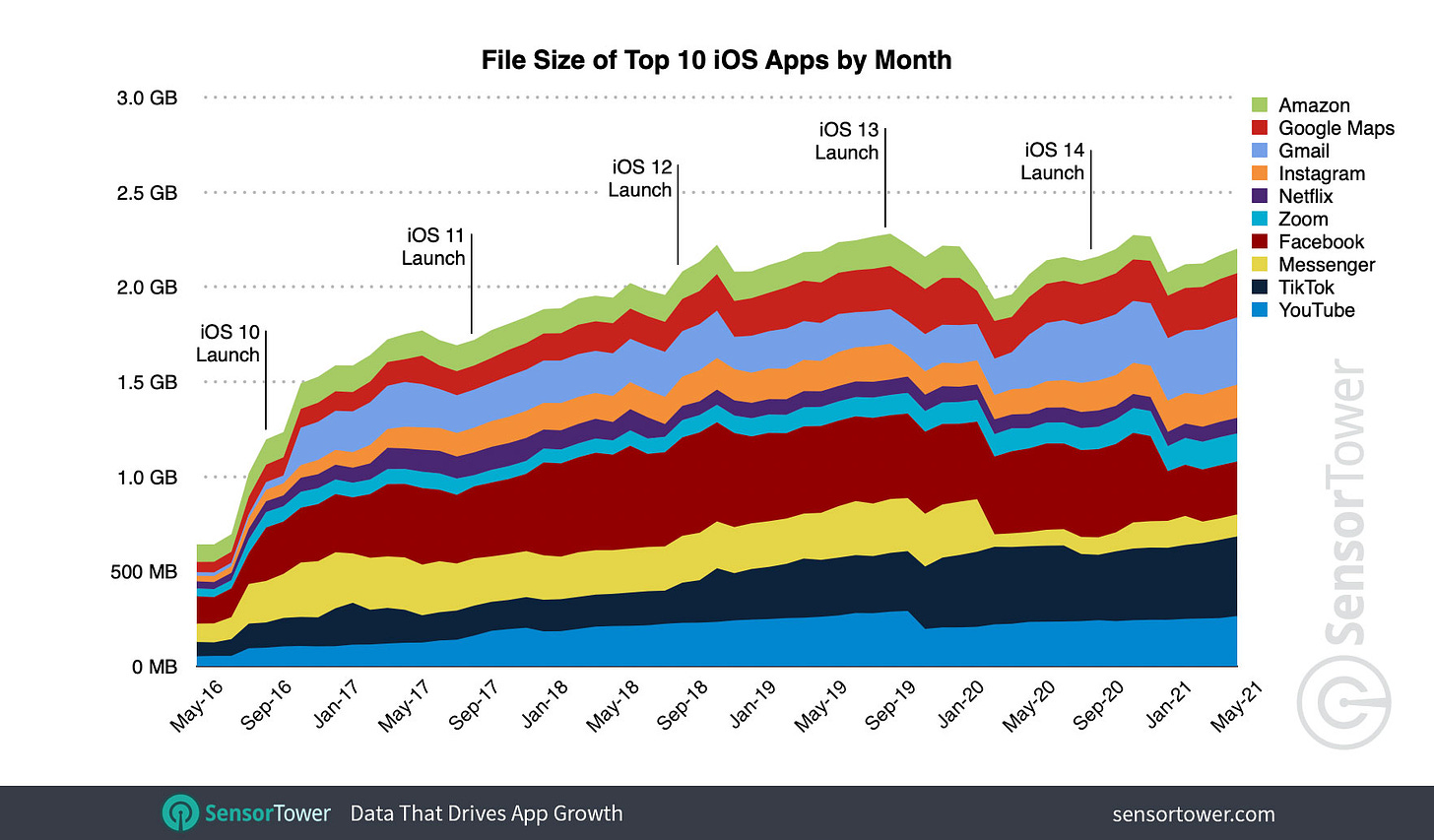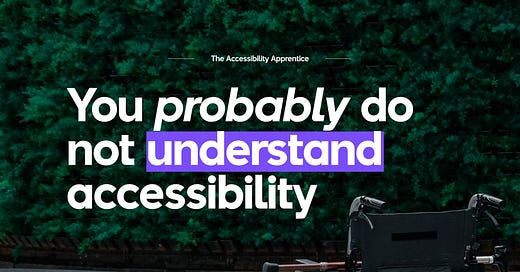
Discover more from The Accessibility Apprentice
Digital obesity
What's the deal with apps and websites getting heavier, and what does it have to do with accessibility?
This is “The Accessibility Apprentice”, a free accessibility newsletter. If you want to receive more insights, teardowns, and accessibility tips in your email once every other week, consider subscribing.
Taking a trip down memory lane
Back in the early 2000s, my Nokia 5300, a snow-white plastic slider with a bright red patch and playback control buttons, stored everything I needed on its 32Mb memory card.
Every other month, I would purge old songs to free up space for new ones, but overall, a removable card was more than enough for all my games, music, and messages.
The glory days of the Floppy Disk had passed, but digital space remained as precious as air. Compression and optimisation were the tenets to live and code by. These were the days when .kkrieger, a 97,280 bytes game, took the first place in the 96k game competition, demonstrating that small programmes can be just as impressive as their heavy comrades.
The scarcity of space became, albeit for a short while, even more relevant when companies began removing support for memory cards, forcing customers to purchase more expensive models to access more physical memory.
However, with the Internet speed growing exponentially from ~14.4 kilobits per second in 1991 to ~100 Mbit/s in 2020, bandwidth was slowly becoming more critical than storage. At least in the developed countries.
Everything is an app
Mobile applications have been increasing in size year after year since their inception, having grown 4 times on average between 2016 and 2021. With major websites and services (Facebook, Reddit) pushing users to download their app, and others existing solely as mobile applications, users rarely have a choice but to download and store hundreds of apps.
Internet’s wide availability and speed encouraged websites to grow as well, offering more services, fighting for the user’s attention and loyalty, and analysing their behaviour.
An average page in 2022 of around 2.2Mb conceals endless lines of code: frameworks, services, trackers. Knowing how users and search engines treat heavy websites, engineers do their best to purge unused code and optimise media files, but they can only do so much.
A fast and stable Internet connection alone doesn’t mean unrestricted access. For instance, have you tried opening modern websites on old devices?
What about the users who cannot afford to purchase a new device every other year? Or those residing in areas with slow, unstable Internet?
Internet Lite
Around 10 years ago, several big companies in an attempt to tap into developing markets began releasing “lite” versions of their applications.
Facebook Lite, Instagram Lite, Skype Lite, and even PUBG Lite, watered–down Android versions of their original counterparts, didn’t make the headlines, but became widely popular. They were taking much less space, often offered a limited functionality, but were enough to attract and retain users in particular regions.
A decade later, mini–apps are alive and well for the most part, except Messenger Lite, which Meta decided to purge recently, but their future remains uncertain.
In the fast-paced world of technology, exponential growth demands substantial sacrifice, and accessibility is typically its first victim.
Buy More
Earlier this year, “The Accessibility Apprentice” shared some notes from usability sessions with blind users. Amongst many notes taken by the team, one mentioned that the majority of participants used iPhone 8 as their daily driver, citing Voiceover’s superiority over Talkback and a physical Home button as the reasons for sticking with the device.
Getting used to a new device may be hard and even traumatising, especially for less savvy users, and having to adapt to a new system is rarely a joyful experience. Assistive technology makes the transition even more challenging, asking users to adapt not only to every UI update, but to a whole new set up. A simple transition from iPhone 8 to iPhone 15 introduces a number of new Voiceover gestures, changing the way you unlock your phone, go to the Home Screen, and switch apps.
In conclusion
Time takes its toll on every device: websites load slower or not at all, application crash constantly, and there is not much choice but to purchase a new model. Bloated software accelerates this process, rendering yesterday’s tech obsolete today, and forcing users to abandon their perfectly functioning, slightly outdated devices.
8 years ago, a Stack Overflow user concluded that the blame was on “the general tendency to spend less time on optimizing things for space and more on introducing new features”. Almost a decade later, Reddit users reached a similar conclusion: by focusing on continuously rolling out new features, companies deprioritise optimisation, performance, and, unfortunately, accessibility.
Subscribe to The Accessibility Apprentice
A biweekly newsletter that covers accessible and universal design in the digital world and beyond, accessibility audits and redesigns, tools and products. Useful, actionable tips for designers, engineers, and managers.










